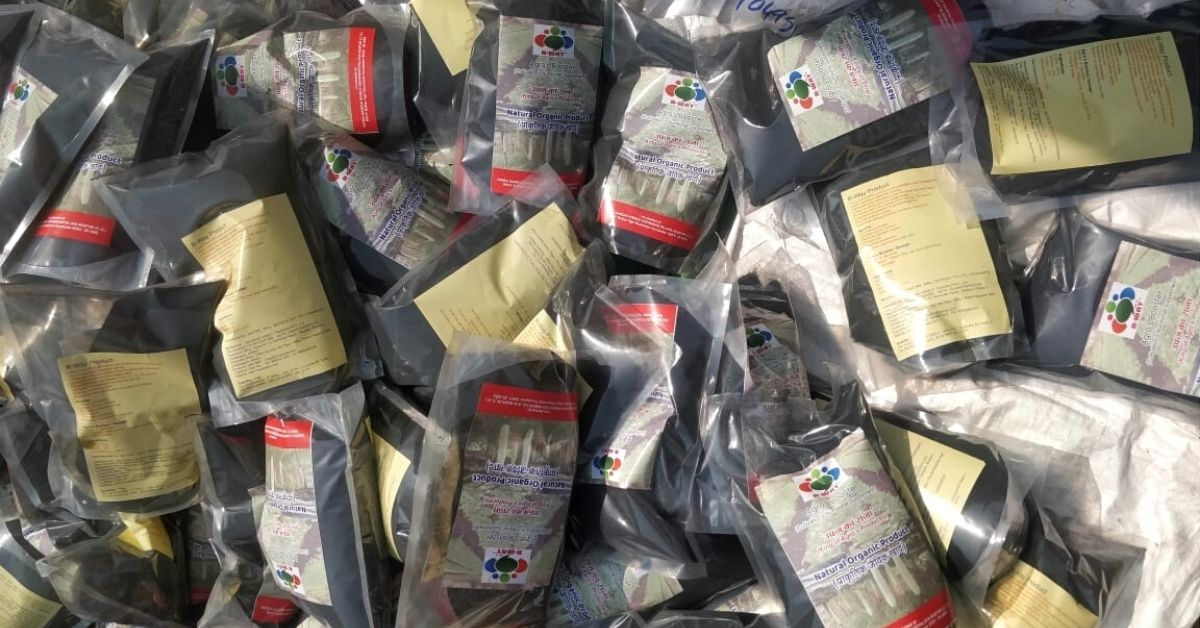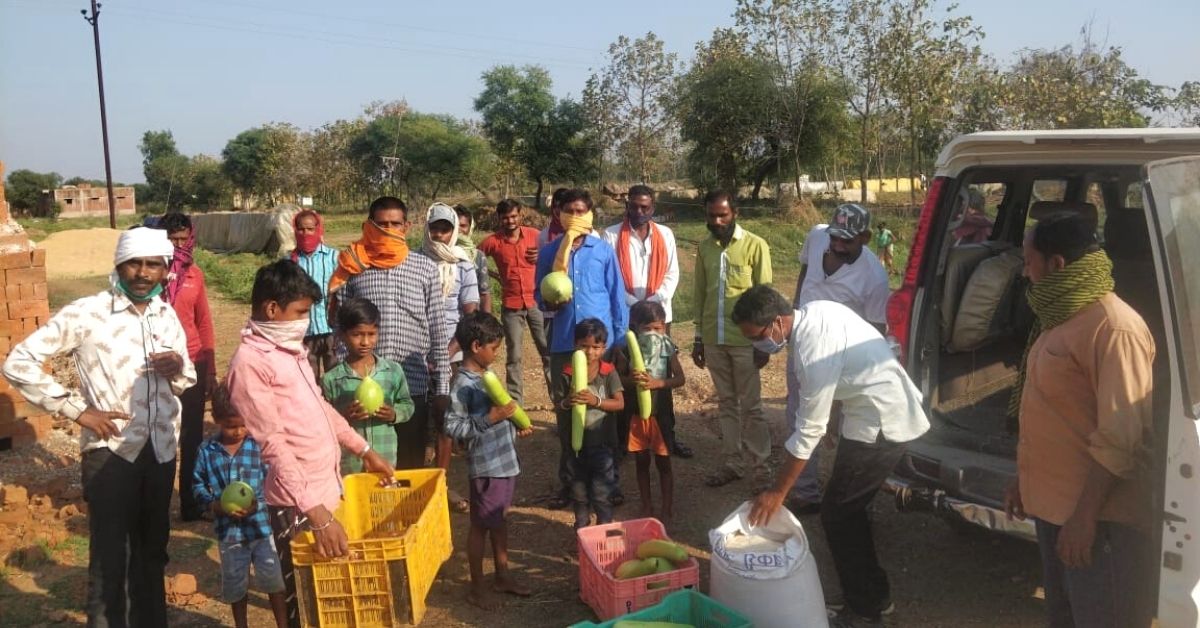Yogesh Sonar from Durg, Chhattisgarh has been well aware of the issues farmers like him face in and around his state. As we connect over call, he shares his concerns over farmer suicides, decreasing and deteriorating agricultural land, and how farmers are shying away from the field.
“Water scarcity leads to drought conditions, which in turn leads to an ever-increasing pile of debt, which forces them to take extreme measures. In fact, the government’s Niti Aayog report from 2019 clearly states how hundreds of farmers are quitting the profession,” Yogesh tells The Better India.
His experiences with the struggles of farmers are not merely observational – as a child, he watched how his father’s farming activities were affected by an unending water crisis. “The groundwater levels in our village Dhamda dried after Holi (March), and we struggled to source water for our crops until the monsoons,” he says.
In 2014, while pursuing post-graduation in science, Yogesh decided to use his knowledge as a farmer to conceive environment-friendly solutions that now bring relief to farmers across the country as well as abroad.
An eco-friendly solution

His innovative organic water retention product Earth Elixir saves up to 50 per cent of the water requirement of crops, and increases productivity by 20 per cent, he says.
“The water retention formula is made from tapioca and six other compounds. The combined effects of these compounds increase water holding capacity by 300 times. The process decreases the frequent need for irrigation as it keeps the soil moisture as required. It helps improve soil productivity due to the potassium-based cellulose made from an extract of the Katira plant, which balances the carbon and nitrogen levels in the soil,” he explains, adding that the product is entirely biodegradable.
The 32-year-old says he began working on the formula in his academic years and achieved success in 2018.
“I developed the product by incubating a startup Nature Walls Biotech Pvt. Ltd. with Indira Gandhi National University under the National Agriculture Programme. I tested it on my farm by growing brinjal, tomato and other seasonal vegetables. The quality of the crop was impressive, especially with the size of fruits and consistency,” he says.
However, he found it difficult to commercialise the product.

Yogesh shares that his product neither fell into the fertiliser category, nor any other listed with the agriculture department. “It was only in 2019 that the agriculture department gave me permission to list it as a production enhancer product. I began manufacturing and selling it through a Bengaluru-based company,” he says.
Initially, the company sold Yogesh’s product to farmers in Africa and Malaysia, he says, adding that the product was well-accepted in those countries and later found a market in Bhutan, Sri Lanka, Nepal and others. “Apart from six countries, my products are sold across India and probably helping millions of farmers,” he adds.
The overall sales have helped him rake Rs 5 crores turnover in the past two years, he says.
Yogesh has also devised 14 other products that benefit farmers in various agricultural aspects of improving crops. “I have a monopoly on selling eight of my products, while the remaining is sold to other companies who sell it under their brand name. Discussions are in progress with Bhabha Atomic Research Centre (BARC), which will help me improve the products and set up a manufacturing unit,” he says.
But for now, Yogesh feels content with his contribution, which benefits the farmer community. “I feel satisfied with my newfound success and will continue the valuable contribution for the community by researching new products,” he says.
Edited by Divya Sethu
No comments:
Post a Comment